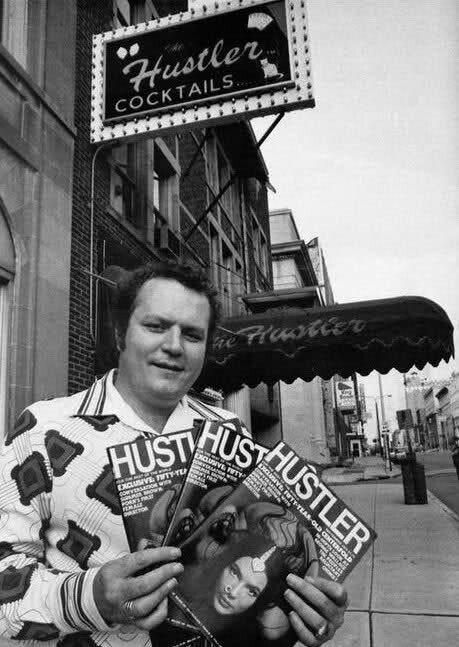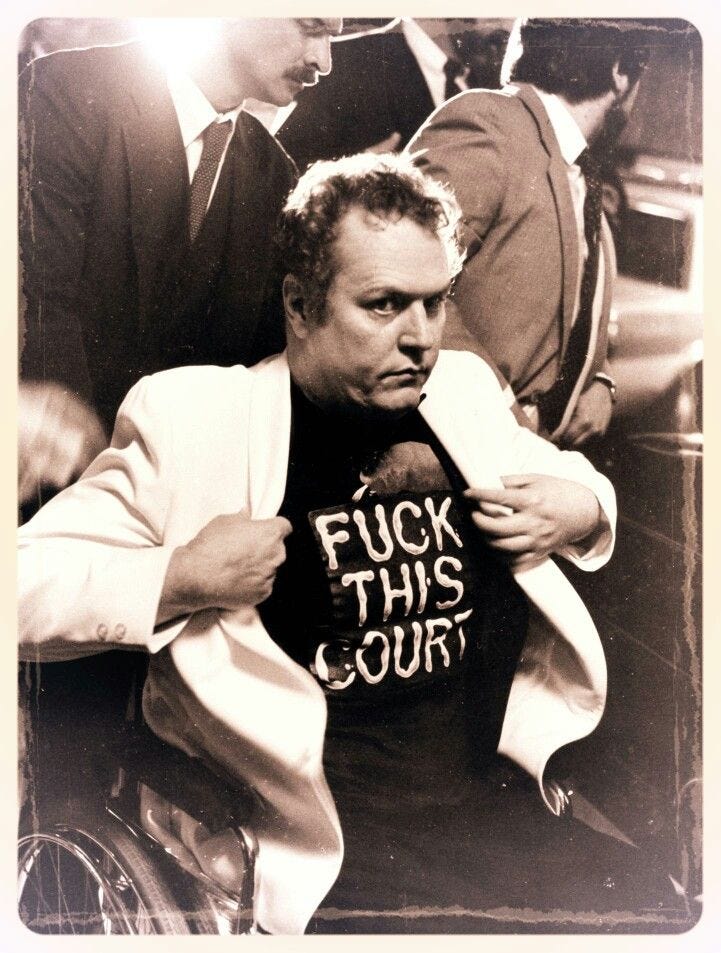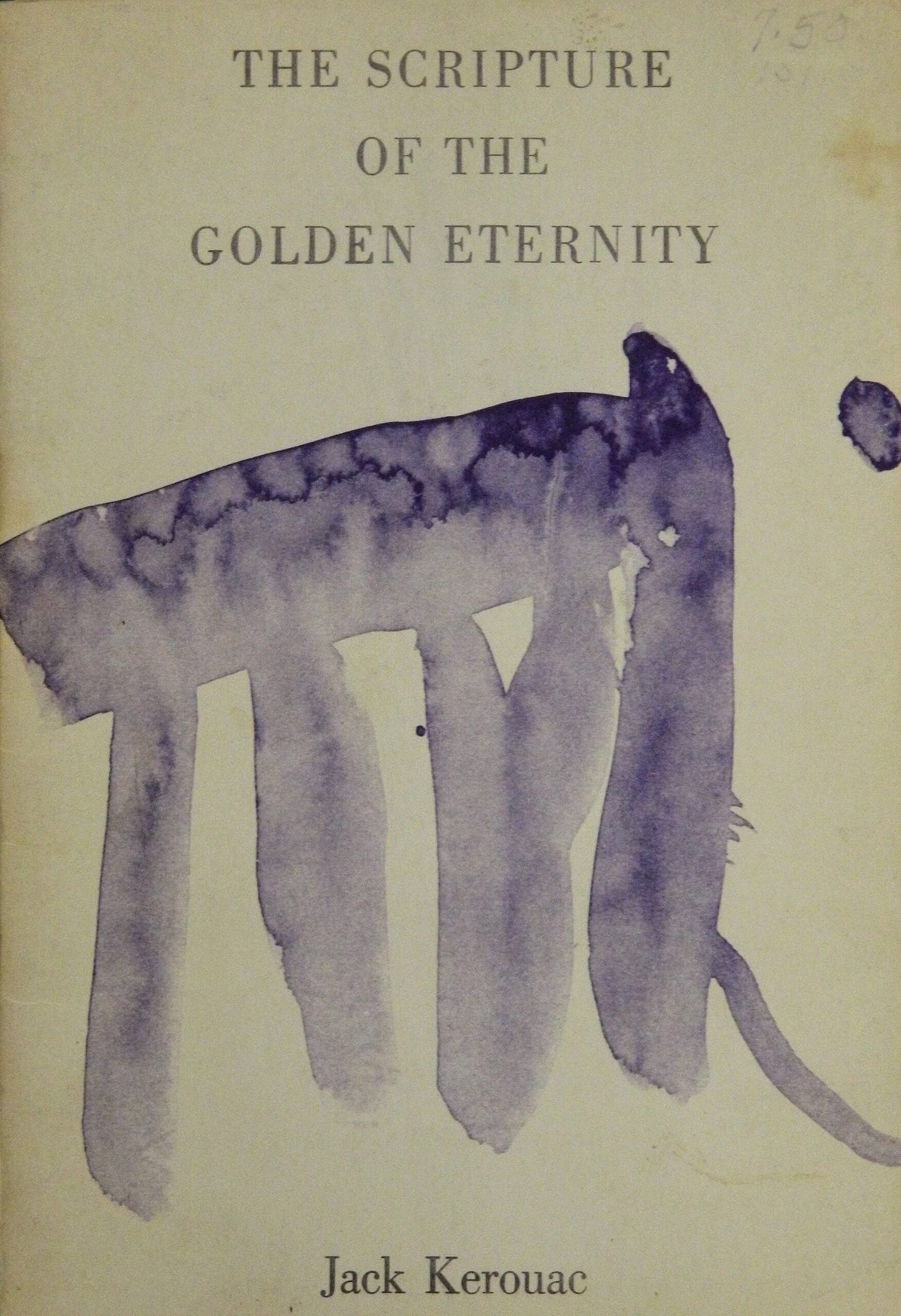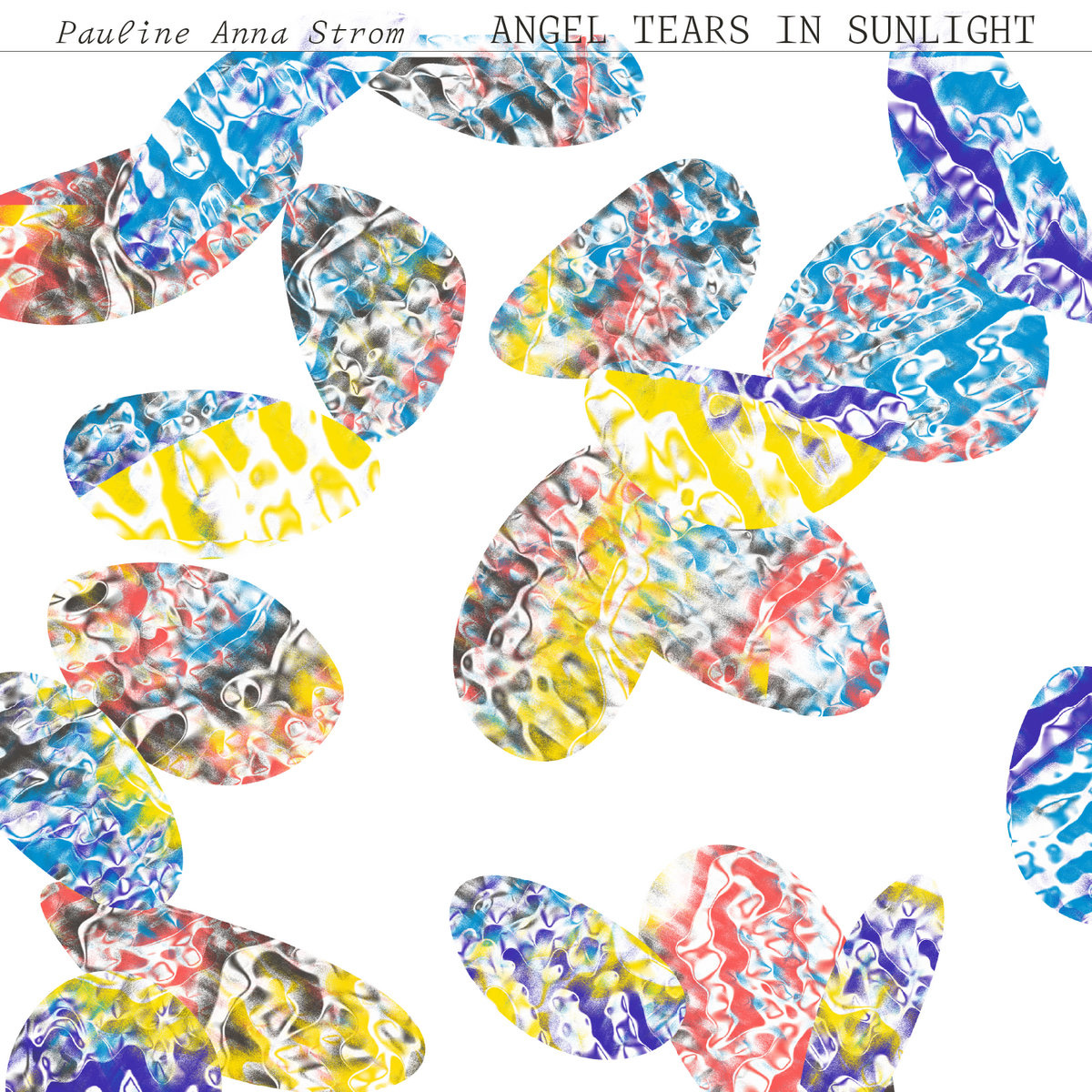I like to keep the opening comments that accompany these monthly updates topical, and this time I expected to review Adam Curtis’ new six-part docubummer Can’t Get You Out of My Head. Since having my mind bent by his Century of the Self (2002) — which pushed the concept of social engineering into popular discourse and made Edward Bernays a hip household name — I have enjoyed nearly all of Curtis’ stuff. He is a master of the archive, of the pleasures and panic to be had diagnosing zeitgeist symptoms through fevers and flashbacks. Sometimes he reminds me of a grim, paranoid version of the old BBC documentarian James Burke, whose chipper Connections series also careened like a pinball through hotspots of history, technology, and culture, weaving a grand story that seemed to explain everything more than it actually did.
But though many friends and readers have bugged me to see Curtis’ series, I have managed to keep Can’t Get You Out of My Head out of my head. Blame it on screen fatigue, or a self-protective recoil from documentary doomscrolling. I’ll get there, but not yet.
Instead I want to pour a 40 for the passing of pornographer Larry Flynt, the founder of Hustler magazine, who died on February 10 at age 78. However you view his legacy, Flynt was a gen-u-ine American Character, a pugnacious mocker of pieties and a scrappy defender of media liberties, not to mention a hell-raising capitalist and self-promoter driven by a combination of idealism, mania, and crass opportunism. His story resonates in curious and contradictory ways with our world today, echoes that find purchase across the cultural and political spectrum.
There were obits aplenty, but my main source here is “A Smut Peddler Who Cares: An Analysis of Larry Flynt,” a paper I wrote in high school for my American Government class. Flynt was running for President at the time (fall of 1983), and his outlandish behavior and free speech intrasigence proved attractive for a lad whose politics were formed by Hunter S. Thompson, Saturday Night Live, and Frank Zappa, whose 1980s crusade against the PMRC followed in the tracks of Flynt’s wheelchair.
Unlike a certain Orange Frito — dare not speak his name — Flynt came by his defiant populism authentically. Born to poverty in Appalachia, he was a high-school drop-out and bootlegger before running a string of strip clubs whose sleazoid newsletter morphed into Hustler in 1974. According to my high-school self, the magazine combined “the glossy photography of Oui, a French publication, with the hard-core smut of Screw and the humor of National Lampoon.” Fringe cultural criticism, here we come!
Flynt was a deplorable, and proud of it. He demanded course language as well as raw images in Hustler, proclaiming that “I would rather have one truck driver read us than ten college professors.” Though his political and cultural positions can’t be neatly categorized, Flynt was consistently anti-elite, and a “hard-core civil libertarian.” Flynt had no patience for anti-porn feminists or other social-justice warriors, and his insistence on uncensored sexuality meant that BDSM and degradation was included in Hustler’s fantasies. At the same time was also pro-ERA, and supported LGBT and same-sex marriage causes. As Vice pointed out in an excellent longform profile from 2016, even Hustler’s side-show scandals meant that the magazine regular challenged its cisdude readership by revealing the complexity and conflicts of sexuality, including images of MMF threesomes, nudge pregnant women, and a pre-op trans woman. This all seems safe as milk these days, but in those days, Flynt was his own breed of sex radical.
Flynt’s mixture of purience and politics has a specific origin: the 1970s, when Flynt found his stride and when American sexual culture mutated big time, changing media, the law, and popular mores. Though this permissive shift was not part of my 70s considerations in High Weirdness, that does not mean that Flynt’s tale lacked for weirdness. Consider his conversion in 1977 to evangelical Christianity through the ministrations of Ruth Carter Stapleton, the sister of then-President Jimmy Carter. Flynt warmed to Stapleton after she referred to Jesus as an anarchist, and his new beliefs led him to tone down the raunch in Hustler, cloaking its defining pink and even featuring a nude Garden of Eden spread for one issue.
Flynt’s evangelical conversion was no more successful than the attempt made on his life in Atlanta a year later, where he had gone to court to defend himself from yet another obscenity charge. The FBI refused to investigate the shooting, which Flynt suspected was payback for his relentless pursuit of the conspiracies lurking behind the JFK and MLK assassinations. His assailant was later determined to be a white nationalist who had objected to a Hustler spread of a black man getting it on with a white woman — a radical image for an ‘70s America that had barely shed its anti-misceganation laws. While we might think of Hustler as lumpen and offensive to liberal sensibilities, it was, once again, the crazy right that brought the guns, making the assassination attempt only the first resonant irony of this period of Flynt’s life. Ding.
Flynt would never walk again, and was left in tremendous physical pain. He moved his business empire to Los Angeles and handed operations over to his young wife Althea, who had served as Hustler’s first life-size centerfold but now held the power to bring the magazine back to its former raunch. (Ding ding.) During what one could call his Howard Hughes phase, Flynt spent years hidden in his Bel Air mansion, gobbling Valium, Percodan, Percocette, Librium, Demerol, morphine and Dialdud. Finally, a laser operation quieted the pain but left him impotent. (Ding ding ding.) With this plot twist, Flynt became the anti-Heff, suffering for, rather than gloating over, his and everyone’s sins.
Flynt returned to the public eye 1983, when he once again started pushing the boundaries of free speech just to see how far they would bend. Calling himself a born-again atheist, he focused his hell-raising on the religious right that was then claiming its piece of the Republican pie. Responding to “Christian nation” talk, Flynt took out a full-page ad in the Times proclaiming that the Founding Fathers were not Christians but Deists. He also published a crude parody of a Campari ad campaign in Hustler which depicted Moral Majority leader Jerry Falwell recalling drunken sex with his mom in an outhouse — and also explaining, “I always get sloshed before I go out to the pulpit. You don’t think I could lay down all that bullshit sober, do you?” This triggered a libel suit that led to a crucial 1988 Supreme Court ruling that held that celebrities cannot recover damages based on “intentional infliction of emotional distress” when the offending material is obviously parody or satire. Later, Falwell and Flynt dialogued in public about the First Amendment and became friends. (Ding ding ding ding.)
In 1983, the year Flynt announced his presidential candidacy, a federal court demanded that he reveal the source of a purported videotape of the FBI threatening the car maker John DeLorean, who was busted on cocaine charges. Flynt refused, citing a journalist’s right of confidentiality. (Later he admitted the videotape was fake.) He was fined $10,000 a day, and then $20,000; one day he paid eight thousand of that in one-dollar bills. He also showed up at the courthouse in a diaper made from an American flag. To reward his antics, the court mandated a psychiatric screening, which determined that Flynt suffered from bipolar disorder; later, he was imprisoned in a mental hospital. Flynt eventually accepted his diagnosis, acknowledging his need for brain meds.
Though Flynt’s gold-plated wheelchair and self-promoting outrage do recall the Orange Frito, Flynt was a different kettle of fish: not only could he hear reason, but was able to suffer publicly, even to “lose.” When 2016 rolled around, he supported Hilary. In 2019, Flynt sent out a Christmas card that depicted the assassination of President Frito.
It wasn’t just personal. Flynt never back-pedalled from his anger and hillbilly resentment towards the ruling class, the “power lords” as he called them. When he ran for president, he criticized the Electoral College (ding) and reminded listeners of their American right “to alter or abolish the government” (ding ding). His running platform featured things like heavy fines for non-voters, mandated high pay for teachers, and the transformation of Indian reservations into independent sovereign nations. But from his core, Flynt wanted a system based on “free thought, individual liberties, and civil rights for all mankind.”
Silicon Valley has swallowed up this kind of libertarianism, and spit out something far more repellant. Rather than extol market savagery as a posthuman force of evolution, Flynt presented libertarianism as a democratic practice and an ethical call, with the First Amendment serving as a kind of reverse Golden Rule for America’s civic religion.
Freedom of speech is not freedom for the thought you love, it's freedom for the thought you hate the most.
Today Americans hate as never before, and free speech has become weaponized by the cynical right — and too often abandoned by the woke left. I’m still that Zappa libertarian in some ways, and sometimes shudder along with Taibbi and Greenwald and a few of the Intellectual Dark Web. But there is also something suspicious and utterly predictable about older white dudes like me getting super-grumpy and flag-wavey about the First Amendment. I do believe that the growing illiberalism of American society is an ominous issue. But I also understand the need to raise questions of power and privilege, and to recognize as well how social media — and corporatist redefinitions of “speech” — have changed the game. Civil liberties is now another one of our wicked problems. Larry, bless his wicked heart, would have just kept his beady eyes on the ball.
Events
Recently I lined up for the wave and accepted a few invitations to appear on Clubhouse and shoot the shit with pals. I like the idea of live and dynamic public conversations with a changing cast of characters known and unknown, but something about the platform left me jangled and exhausted. The hustle is thick and the shared contexts required for good conversation elusive. And now I hear that the company is particularly ferocious on hoovering and controlling your data. As a sharp Silicon Valley watcher I know put it, “It's all extractive, all the time, getting people to freely provide content and the monetising it against their desire and probably weaponising it as well.” Sigh. I have nothing new to say here, but my Clubhouse jaunt gave me a renewed horror for how surveillance capitalism dominates the spaces of public discourse we need to not just spin out into our own Private Idahos. The whole thing makes me want to shut my mouth, scramble the signal, and hide behind the noise.
Along those lines, I have decided to pull back from virtual events and podcasts for a long while (barring the prospect of “impossible to refuse” offers). I still have some engagements over the next few months, but in order to get to some other projects, personal and otherwise, I need to break the habit of “Yes.” Basically, I opened the publicity door when High Weirdness came out, and the weirdness of current events meant that it never shut. And you know what Lovecraft taught us about leaving doors open. To keep up with my doings just look out for these monthly posts.
(•) SF PSYCHEDELIC SANGHA: The San Francisco Psychedelic Sangha will meet this month at 6pm PT on Saturday, March 6. As the sangha has evolved, we seem to talk less about psychedelic experience in particular, and more about a psychonautical approach to consciousness, ethics, and practice. As always the event will combine a talk, a practice, and an unrecorded discussion. Heresy and mutation fully accepted. Tonight we will be spending some time with the Beat Buddhism of Jack Kerouac, a dharmanaut ancestor, and particular his curious sutra The Scripture of the Golden Eternity (1960). Sign up here; any dana should be tossed into the SF Dharma Collective bucket.
(•) PHILOSOPHY & RELIGION FORUM: I was honored to be invited to participate in the Philosophy & Religion Forum held through the University of Southern Mississippi (another future guest is Wouter Kusters, whose new tome A Philosophy of Madness I am enjoying heartily). For this talk, which takes place on March 16th at 4:30 PM Pacific Time, I decided to integrate and reframe a lot of the research I have been doing on conspirituality into a discussion of “Archonology” and other Gnostic precedents for conspiracy and New Age politics. The event streams for free.
Appearances
(•) OPEN DIV: What do we do with religion in the modern world? Open Div is a leading project devoted to tracking and translating divinity into secular society. Last month they staged the Open Div Summit, for which I contributed a podcast discussion on “Technology, Psychedelics, and the Future of Religion,” available on Spotify and Anchor. This was a fun conversation because I got to work out some of my Religious Studies chops: the question of religion in modernity, the peculiar identity of the “Spiritual But Not Religious,” the role of technology in faith, and the strange and hair-raising possibilities of psychedelic religiosity going forward.
(•) CONSPIRITUALITY: Last month, I led a Chacruna Community Forum on the topic of New Age conspirituality and “QAnon Shamanism.” I was joined by two friends and peers, Jules Evans, author of Breaking Open and The Art of Losing Control and other books, and Erica Magill, co-founder of the Lost Angels Yoga Club. It was a great conversation, which modeled the blend of compassion and critique I think we need right now, and the audience offered quality questions. You can watch the conversation here, and might also consider becoming a Chacruna Member and checking out their other Forums, as well as the upcoming Sacred Plants in the Americas II conference they are organizing for the weekend of April 23-25.
(•) NEW AGE PIONEER: I spoke with Lewis Gordon for a fine NPR article he wrote about Pauline Anna Strom, the blind San Franciscan electronica pioneer who appeared on Expanding Mind a few years ago when a compilation of her classic tracks was released. Though we did not meet in person, arranging the interview with Strom took some doing, but I got to know her better through it and the conversation turned out to be one of the better shows I recorded. I was very sad to hear that Strom died a few months ago, just before the release of her first new record in decades.
Made with gear a bunch of fans and supporters helped buy, Angel Tears in Sunlight (RVNG Intl.) is airy and sweet — the classic generosity of the classic New Age. Strom does spelunk down a few familiar cosmic gulfs but mostly dances and drifts in shimmering digital array. Most unusual is Strom’s use of percussion — synthy gamelan, echoing footfalls, gurgling psychedelic water droplets. These add texture and tangibility to the plangent and sometimes downright chipper washes of sound. She will be missed.
I hope you enjoyed this flicker of Burning Shore. Please consider a paid subscription if you can. Or you can drop a tip in my Tip Jar.
Burning Shore only grows by word of mouth, so please pass this along to someone who might dig it. Thanks!









Thanks for Great stuff again!
Somehow one issue of Hustler survived in my museum, but it’s a good one from March 1984 featuring an article from Tim Leary on porn, and pics of Elvira. Fun to look back on old magazines n see how things changed.
Do any parts of the Psychedelic Sangha get recorded? Being located in Amsterdam, physically attending is not possible. And due to time zones dialing in would mean waking at 3AM on Sunday morning. I would still be very interested in listening in to part of it.